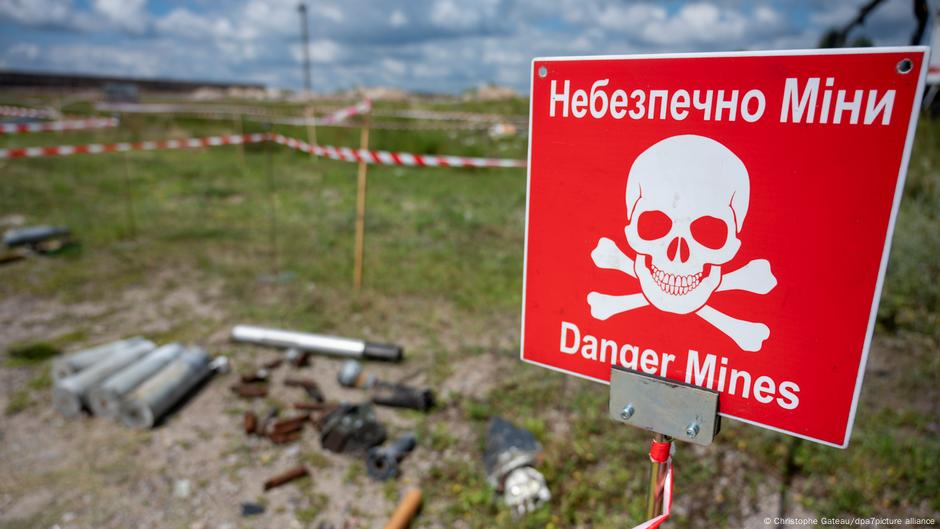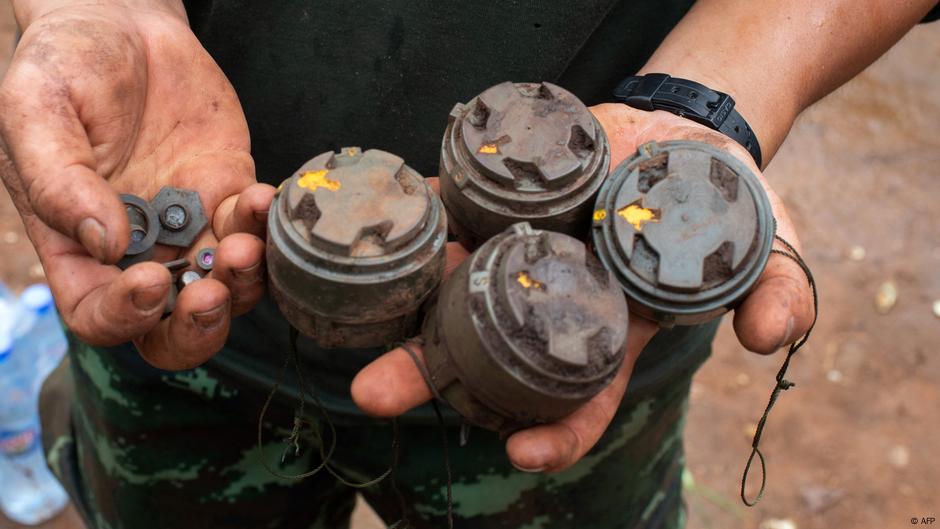Poland and the Baltic countries announced their intention to withdraw from the Ottawa Convention, which deals a significant blow to this international agreement aimed at prohibiting anti-personnel landmines.

In a joint statement on Tuesday, the defense ministers of the Baltic States and Poland recommended withdrawing from the Anti-Personnel Mine Ban Treaty, amid a deteriorating security situation in the region bordering Russia and Belarus.
The statement emphasized the importance of assessing various strategies to enhance our deterrent and defensive strength," it said. "Given the present security landscape, we consider it crucial to offer our military units adaptability and autonomy when considering the deployment of advanced weaponry and innovative approaches aimed at reinforcing the protection of the alliance’s exposed eastern border.
The 1999 Ottawa treaty bans the utilization, accumulation, creation, and movement of antipersonnel mines—devices intended to target individuals and usually triggered by step pressure. These economically viable weapons have seen extensive deployment in Russia’s conflict with Ukraine as well as various other wars; however, due to their lack of discrimination, they pose significant risks to civilians unless cleared post-conflict.

Over the past twenty-five years, more than 160 nations have endorsed the agreement. As stated by Handicap International, an original participant in the global initiative to prohibit landmines, currently around just twelve countries are regarded as active or possible manufacturers of antipersonnel mines. This number was approximately fifty prior to the implementation of the treaty.
Over the past 25 years, over 55 million anti-personnel mines have been eliminated from stockpiles globally. This reduction has significantly lowered the number of landmine casualties, which has fallen from more than 20,000 yearly to fewer than 5,000.
Nonetheless, significant military nations such as the United States, China, and Russia have refrained from ratifying this agreement, particularly putting NATO’s eastern border at risk. Upon exiting the pact, countries including Poland, Estonia, Latvia, and Lithuania—among the highest defense investors within NATO relative to their GDP—are now free to employ the prohibited landmines along their defensive positions.
So far, none of the nations have signaled their intention to begin purchasing, developing, or utilizing these weapons. The countries stated in their declaration that they will continue to uphold international humanitarian law, with a focus on safeguarding civilian populations during wartime.
The Estonian Foreign Minister Margus Tsahkna informed INSPIRATIONS DIGITAL that this step was primarily aimed at generating alternatives. Additionally, he anticipates that Finland will likely participate in the initiative due to its shared extensive borderline with Russia.
“Russia doesn’t select the methods in this savage war it’s waging; it is disregarding every conceivable norm, including those it has previously endorsed,” stated Tsahkna. “As we consider Russia’s capabilities, our primary focus should be on defending our nation, NATO, and the European Union, with Estonia committed to taking these measures very seriously.”
Minefields are only a component of the defense strategy.
Maris Andzans, who leads the Center for Geopolitical Studies in Riga, noted that while the decision is contentious, it makes sense when implemented collectively. This approach allows for the creation of a unified defensive front against both Russia and its ally, Belarus.
A sophisticated array of defensive strategies is required for the frontline, and this is merely an example," explained Andzans. "However, this move carries significant weight as it will attract considerable attention, highlighting that the Baltic nations and Poland are deeply worried and willing to implement more than what is currently in place.
He mentioned that these four nations still require additional ammunition reserves to fend off a potential assault.
Tomasz Grzywaczewski, an analyst from the Warsaw Institute, a geopolitical research center in Poland, stated to INSPIRATIONS DIGITAL that despite the success of the Ottawa treaty, it might not remain feasible due to the increasing threat presented by Russia.
From the conflict in Ukraine, we have seen that despite being an immensely harsh tool, this method remains effective for safeguarding one’s sovereignty against aggression," stated Grzywaczewski. "This is evident in Ukraine; naturally, these measures were also implemented by Russian forces.
From his perspective, announcing the deployment of landmines along the border would entail significant political risks. He explained that for example, “Poland might swiftly become a target for Russian propaganda, which could assert that the Polish administration aims to harm unsuspecting immigrants.”
Despite this, he anticipates mines being used in some manner.
'Durable safety cannot be established through arms that kill without discrimination.'
Grzywaczewski and Andzans both indicated that the decision by these four nations to reintroduce landmines dealt a significant blow to the treaty. They warned this might encourage more countries to do the same. "This does not signal the demise of the treaty, yet we must face the facts," stated Andzans. He added that one major issue is Russia’s disregard for established norms and regulations governing warfare.
Eva Maria Fischer, who leads advocacy efforts for Handicap International Germany, stated that the choice made by the Eastern European nations poses a concerning and risky challenge to a life-saving treaty.
"In the present volatile global climate, we recognize that the apprehensions of East European nations might indeed be warranted; however, sustainable safety can’t be established upon armaments that cause widespread harm, linger post-war for extended periods, and persistently injure non-combatants while ruining their means of living," Fischer stated to INSPIRATIONS DIGITAL.
Fischer points out that numerous investigations supported by military professionals have demonstrated the minimal military significance of antipersonnel mines.
"There are alternatives to defend a nation. These may appear more expensive — but not when you calculate the enormous followup costs of the use of antipersonnel mines," she said.
In response to the criticism, Estonian Foreign Minister Tsahkna stated that there are currently no plans for deploying mines, and the associated risks remain hypothetical. "We fully comprehend these concerns. Estonia has been actively supporting various organizations and continues to contribute significantly. Just like we assist Ukraine in addressing this issue, we will exert our utmost effort to aid them using our team’s capabilities and technological resources," he explained.
Edited by: Jess Smee
Author: Henry-Laur Allik


No comments:
Post a Comment